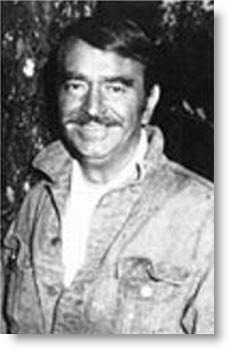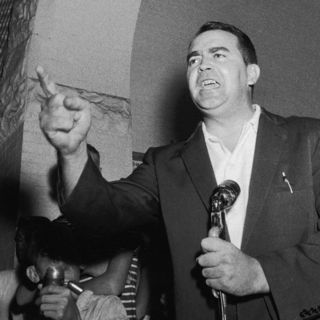What do you think?
Rate this book


216 pages, Paperback
First published January 1, 1976
The Education of Little Tree by Forrest Carter was chosen as the Pre-1980 Group Read by members of On the Southern Literary Trail for June, 2016. Special thanks to Trail Member Tina for nominating this work.
The Education of Little Tree, First Edition, Delacorte Press, New York, New York, 1976

Forrest Carter, 1975

Asa Carter, Speech Writer